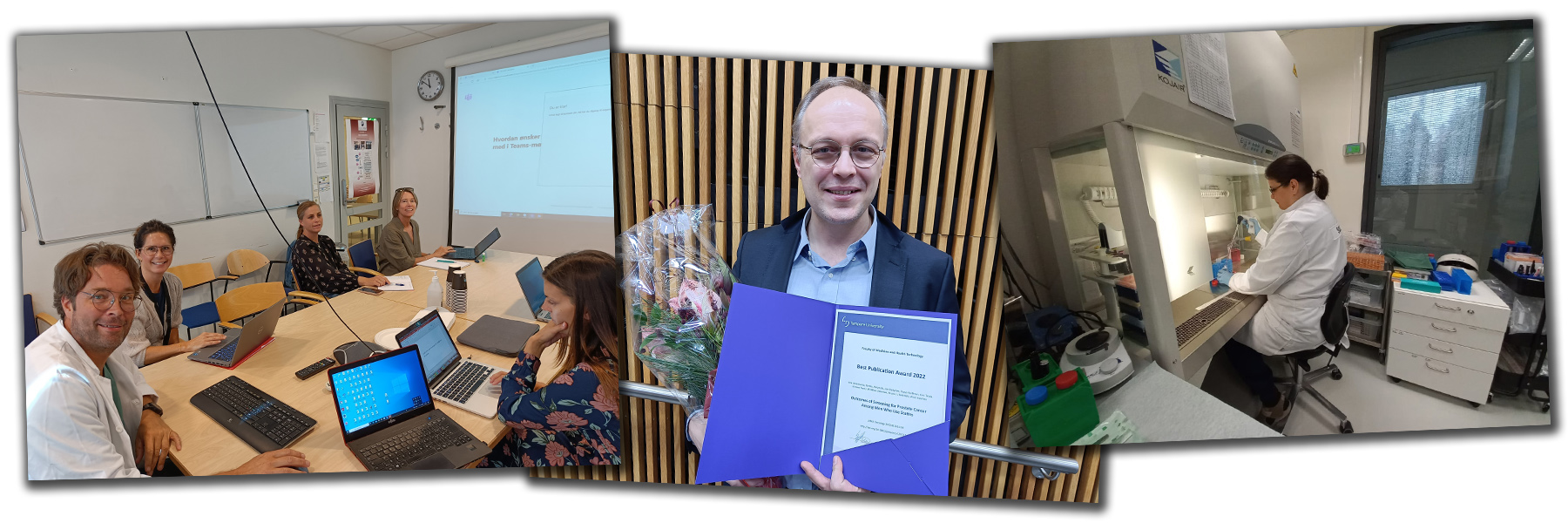We are a clinical research team with strong commitment to improve prostate cancer care through deeper understanding of biology underlying disease progression and treatment resistance. Our main focus is exploring the roles of lipid and cholesterol metabolism at different phases of prostate cancer progression.
We carry out investigator -initiated randomised clinical trials. During these trials we collect biological samples for translational studies evaluating biomarkers for disease progression and for creation of organoid models to be used in vitro. In cell culture studies we characterise distanct roles of lipid and cholesterol metabolism in prostate cancer immune microenvironment, adaptation to hypoxia and in the interaction between prostate cancer cells and the surrounding stroma.

